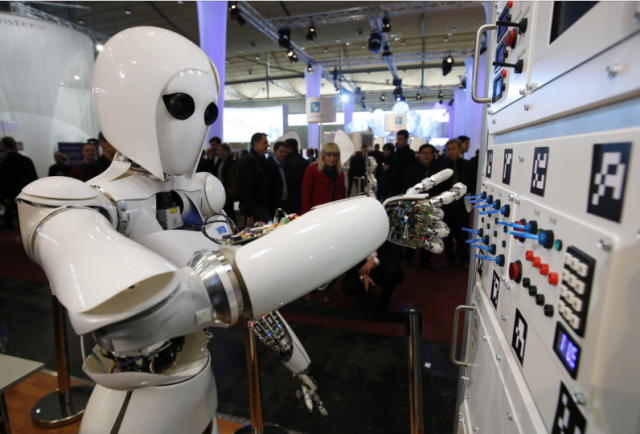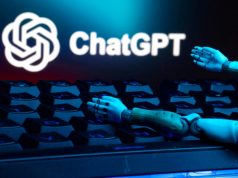
MANILA, Philippines – Back in 2001, Artificial Intelligence (AI) was just an American sci-fi film directed by Steven Spielberg, starring Haley Joel Osment, who played David, an advanced type of robot capable of thinking and feeling.
But now, bots are no longer a figment of the imagination of directors and fiction writers. The AIs — intelligent machines that work and react like humans — have become real, threatening to dislodge thousands of workers from their bread and butter, especially those from the business process outsourcing (BPO) industry.
In the Philippines, over one million Filipinos work in the BPO sector, which has become the country’s second largest source of dollar earnings. But with the increasing dependence on AIs, there’s no guarantee that the sector would still continue help pump-prime the country’s economy.
Thus BPO workers must now prepare, according to economist Cielito Habito.
“We have to begin planning for the post-BPO era because a lot of the BPO jobs are going to be replaced by artificial intelligence. So the thing to do is to look forward and anticipate getting into that mode itself,” said Habito, former chief of the National Economic and Development Authority.
The outsourcing industry group IBPAP (Information Technology and Business Process Association of the Philippines) is aware of the changes that will be brought by AIs and is now helping their employees cope via skills upgrade.
In a media interview earlier this year, IBPAP chairman Lito Tayag said his group was already working closely with the industry, the academe, and the government “in terms of preparing our skill or pool of talent for the next set of skill.”
Also, the Department of Science and Technology (DOST) has decided to include AI in its national research agenda.
Last November, DOST-Philippine Council for Industry, Energy, and Emerging Technology Research and Development Deputy Executive Director Raul C. Sabularse said the department was in talks with R&D institutions to develop a program on AI consisting on various project components.
“We are in the process of consulting experts and stakeholders to form a development program on artificial intelligence. This is something not totally new but it is a promising field for our researchers with applications in the industry,” Sabularse said.
IT revolution via data science, business analytics
Other technological revolutions changing traditional ways of doing work are on data science and business analytics.
Data science is a field of big data that seeks to provide meaningful information from large amounts of complex data, according to Investopedia. It says data science combines different fields of work in statistics and computation in order to interpret data for the purpose of decision making.
According to NG Data, “business analytics is “the study of data through statistical and operations analysis, the formation of predictive models, application of optimization techniques, and the communication of these results to customers, business partners, and college executives.”
This type of analytics uses evidence-based data for business modeling and decision making. It helps firms achieve competitive advantage through exploring data to find new patterns and relationships, using statistical analysis to explain why certain results occur and predictive modeling and predictive analytics to forecast future results.
“’Yong sa [In] analytics, which is very important especially abroad, they are really focused on the result of the analytics and how to use it as their guide to run their businesses,” said Emerson Anatacio, chairman of the Philippine Chamber of Commerce and Industry’s Science Committee.
“So hindi na ‘yong nanghuhula sila kung ano ‘yong pulso ng market [So they no longer guess what’s the pulse of the market] but somehow they want direct to the point and may [there is] basis so very in demand,” he added.
To enable Filipinos to increase their work and business opportunities related to business analytics and data science, analytics associate professor Erika Fille Legara of the Asian Institute of Management said more students should take Math and Science courses.
“It will be very helpful if you take the hard science courses, thats what they refer to them. So Math, Statistics, Physics, Chemistry. All the courses that are quantitative in nature will make things easier for you as you go through a data science course or program,” said Legara.









